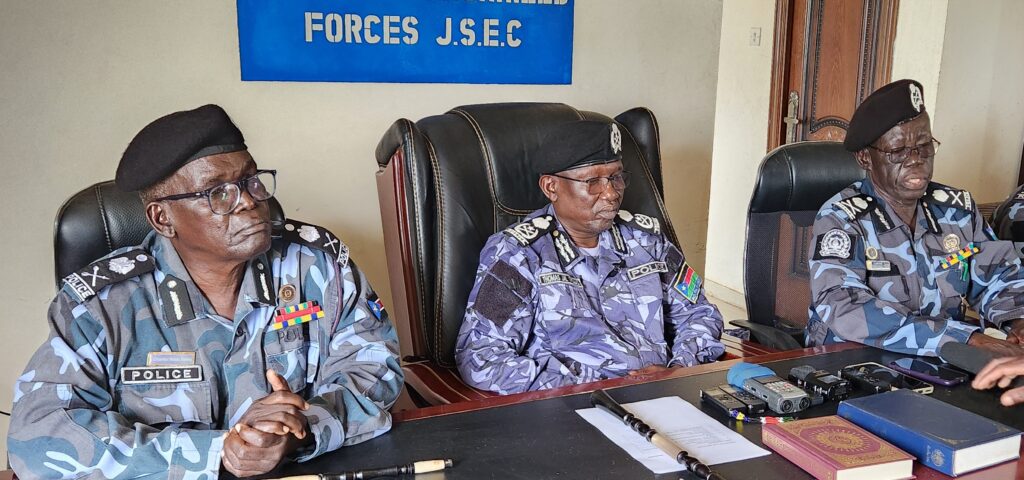A Joint Special Emergency Court (JSEC) was launched to try members of South Sudan’s armed forces who commit crimes against civilians. It aims to promote justice and accountability for crimes committed by members of the organized forces.
The court was first launched in 2015 but seized operations for reasons not made public by the security forces.
According to reports, South Sudan will not stem pervasive violence and horrific human rights violations and abuses without tackling impunity.
A 2023 UN inquiry report provided details on how perpetrators of the most serious crimes, including widespread attacks against civilians and extrajudicial killings, remain unpunished. Government officials and soldiers are implicated in serious human rights violations.
Speaking during the launch of the joint court in Juba on Friday, Maj. Gen. Sadik Ismail Sidigi, leader of the court’s panel, said the launch marks a pivotal step forward in the security sector’s commitment to upholding justice and accountability.
“It signifies our dedication to maintain the highest standard of conduct and integrity among those tasked with protecting our nation. The primary goal of this court is to provide a fair, impartial, and efficient judicial justice in service swiftly, reinforcing confidence in our legal system among service members and the public,” said Maj. Gen. Sadak.
“This initiative would not have been possible without the collaboration efforts of various stakeholders, SSPDF leadership, South Sudan National Police Service leadership and National Security Service’s Internal Security Bureau leadership,” he added.
For his part, Gen. Thomas Jal, Deputy Inspector General of the South Sudan Police Service, said the court has experienced lawyers and judges to the standard of the judicial system, which is for the trial of not only members of the organized forces but also members of the public who are willing for their cases to be tried in court.
Gen. Jal admitted that most of the crimes recorded in South Sudan were perpetrated by members of the organized forces either directly or indirectly.
“This time, we have to be clear and realistic. Most crimes that are happening now most of the crimes are either committed by people in uniform or are part of the crime. So, we have to admit this because if you don’t point at things the right way, things will not be solved. We have to admit that our people now in uniform most of the crimes in South Sudan and particularly in Juba, the capital, are being committed by us,” he said.
“We have our laws that guide us. We have the laws of the police, army, and prison service, and this court will be very transparent. I call on the media to come and cover the cases so that people can know,” he added.
Meanwhile, Thomas Tut Nyuon Kueth, Deputy President of the JSEC, said the court will try members of the organized forces without favour.
“I would like to tell the public that any senior officer who commits a crime is not immune to this court,” he said.
John David Kumori, Director of Public Relations in the National Security Service (NSS), said the court had done tremendous work in 2015, handling many cases without fear or favour.




